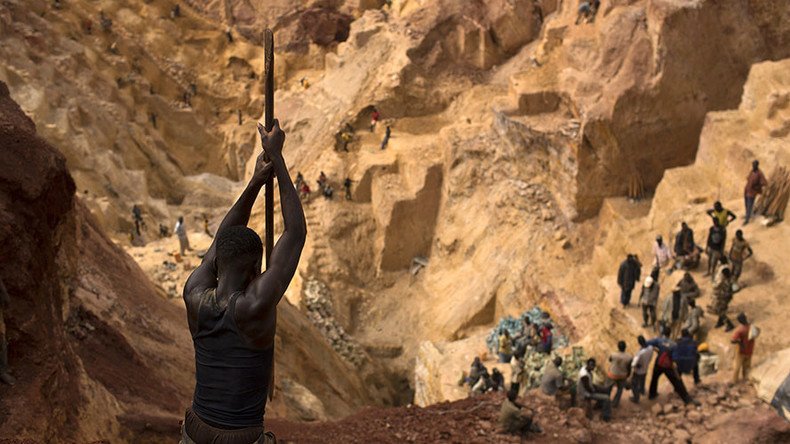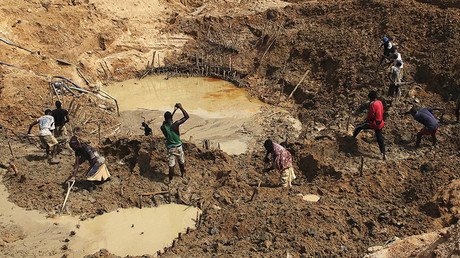Cash from corrupt African mining deals flowing freely through London markets – report

British financial regulators are failing to stop money generated in “corrupt” African mining deals from being laundered through UK markets, says a new report, that also singled out a City hedge fund for being involved in “bribery in its purest form.”
The report from NGO Rights and Accountability in Development (RAID), an organization that fights corporate misconduct, says there has been a “repeated failure of the UK regulatory authorities [to stop the corrupt practice] over a 10 year period.”
It says action has never been taken to “prevent assets acquired through corrupt means being traded on the London markets,” despite warnings from the UN and compliance watch lists.
In September of 2016, the US Department of Justice (DOJ) charged Och-Ziff Capital Management Group LLC (Och-Ziff), a large Wall Street hedge fund, with conspiracy to violate anti-bribery laws. It described the practices of Och-Ziff as “bribery in its purest form.”
The DOJ investigation detailed bribes of tens of millions of dollars that had been paid to Democratic Republic of Congo (DRC) officials in order to secure investments for the fund in diamonds and mining.
Corrupt payments to officials in Libya, Chad, Niger, Guinea, and Zimbabwe were also investigated, and Och-Ziff was ordered to pay £316 million ($412 million) to settle the charges.
RAID claims the “corrupt transactions” in the DRC and “suspicious payments” in Zimbabwe had a London link.
“All of the corrupt transactions outlined in the settlement and under a deferred prosecution agreement had a London connection: the deals were arranged through Och-Ziff’s London office and many of the entities involved were London-listed,” said Patricia Feeney, RAID’s executive director.
“A key question is whether UK authorities… actually approved or licensed the transactions,” she added.
The report says: “Over the past decade, at crucial moments, the UK authorities were in a position to take action over the ‘London connection’ – the key role played by Och-Ziff’s London office and the use of UK markets to list and launder African assets – that might have thwarted at least some of the corrupt deals and could have prevented ‘the flow of dirty money into the City.’”
RAID says the assets being laundered through UK markets helped fund a “brutal war” in the DRC and were “used to reward the government’s allies and vested interests in its aftermath.”
It added: “The DRC, a deeply impoverished country, weakened by years of conflict and lacking strong institutions, was particularly vulnerable to the predations and the schemes of an unscrupulous cabal of wheeler dealers.
“The scale of corruption they embarked on is breathtaking. President Kabila amassed an estimated $1.5 billion while almost 87 percent of the DRC’s 69 million people live on less than $1.25 a day.”
“Lessons must be learned from the Och-Ziff case,” Feeney said.
“Where necessary lessons should be enacted and existing regulations more rigorously enforced to ensure nothing on this scale happens again,” she stressed.













